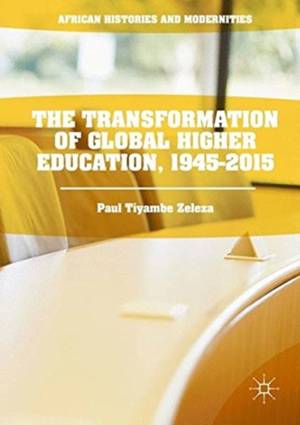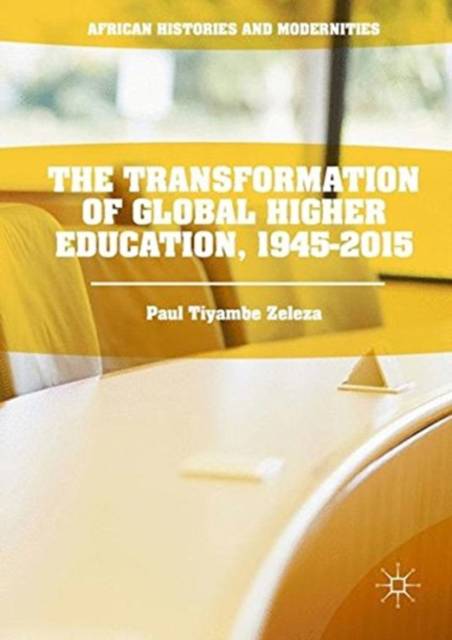
- Afhalen na 1 uur in een winkel met voorraad
- Gratis thuislevering in België vanaf € 30
- Ruim aanbod met 7 miljoen producten
- Afhalen na 1 uur in een winkel met voorraad
- Gratis thuislevering in België vanaf € 30
- Ruim aanbod met 7 miljoen producten
Zoeken
€ 99,45
+ 198 punten
Uitvoering
Omschrijving
This book explores some of the major forces and changes in higher education across the world between 1945 and 2015. This includes the explosions of higher education institutions and enrollments, a development captured by the notion of massification. There were also profound shifts in the financing and economic role of higher education reflected in the processes of privatization of universities and curricula realignments to meet the shifting demands of the economy. Moreover, the systems of knowledge production, organization, dissemination, and consumption, as well as the disciplinary architecture of knowledge underwent significant changes. Internationalization emerged as one of the defining features of higher education, which engendered new modes, rationales, and practices of collaboration, competition, comparison, and commercialization. External and internal pressures for accountability and higher education's value proposition intensified, which fuelled struggles over access, affordability, relevance, and outcomes that found expression in the quality assurance movement.
Specificaties
Betrokkenen
- Auteur(s):
- Uitgeverij:
Inhoud
- Aantal bladzijden:
- 385
- Taal:
- Engels
Eigenschappen
- Productcode (EAN):
- 9781349720743
- Verschijningsdatum:
- 23/03/2021
- Uitvoering:
- Paperback
- Formaat:
- Trade paperback (VS)
- Afmetingen:
- 148 mm x 210 mm
- Gewicht:
- 480 g

Alleen bij Standaard Boekhandel
+ 198 punten op je klantenkaart van Standaard Boekhandel
Beoordelingen
We publiceren alleen reviews die voldoen aan de voorwaarden voor reviews. Bekijk onze voorwaarden voor reviews.











